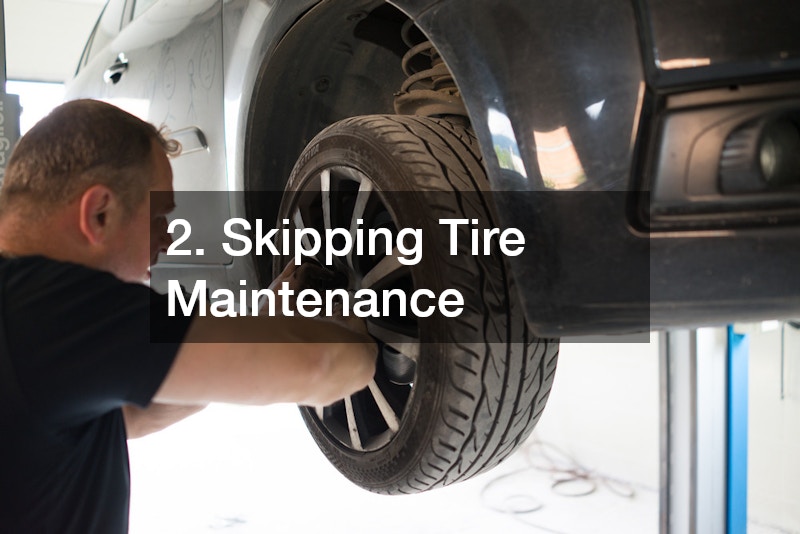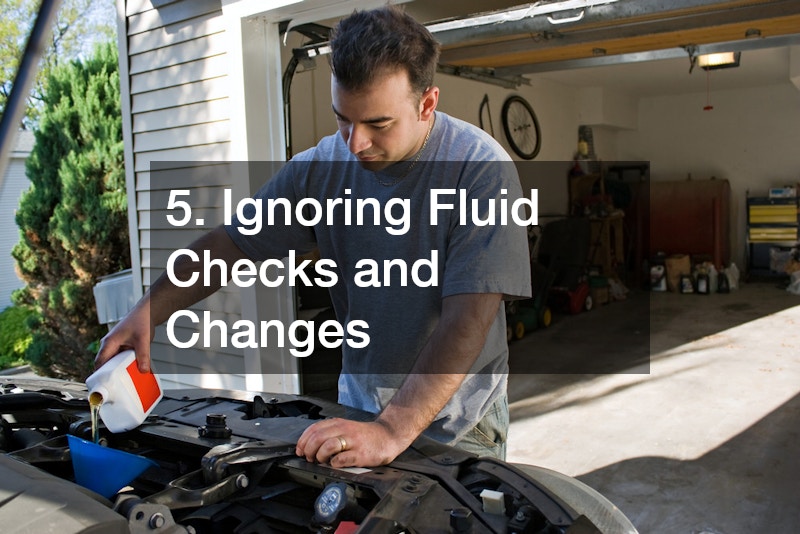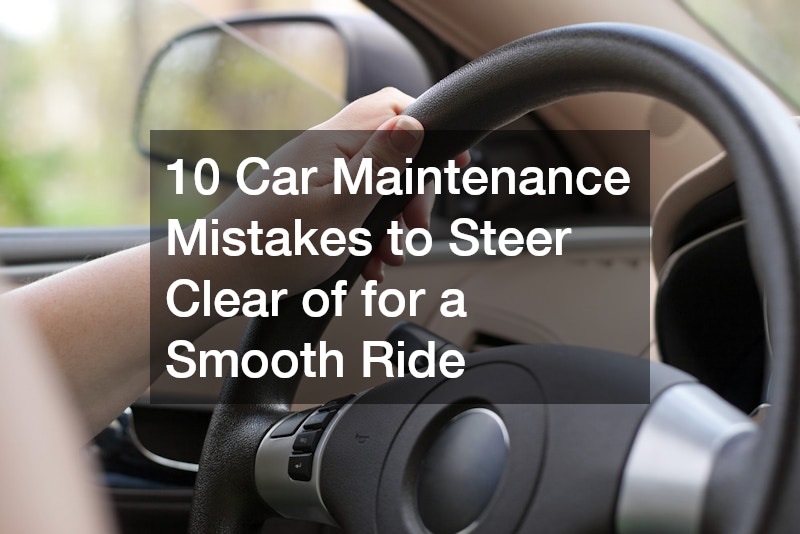Owning a car is an essential part of many people’s daily life, providing convenience and freedom to travel. However, owning a car also comes with the responsibility of proper maintenance to ensure a healthy car that performs well and stays safe. While most car owners are aware of the importance of maintenance, there are common mistakes that can lead to costly repairs, decreased performance, or even dangerous driving conditions.
In this article, we will explore the ten most frequent car maintenance mistakes people make and why you should steer clear of them to ensure a smooth and safe ride.
1. Ignoring Regular Oil Changes
Regular oil changes are one of the most basic yet essential forms of car maintenance. Your engine’s oil lubricates its parts, reduces friction, and prevents overheating. Over time, oil can become contaminated with dirt, debris, and metal shavings, which can make it less effective. Ignoring oil changes allows this buildup to compromise the engine’s performance and can lead to serious engine damage.
Why It’s Important:
Changing your oil regularly ensures that the engine continues to run smoothly, preventing excessive wear and tear. Neglecting this maintenance can result in increased engine friction, overheating, or, in the worst case, a seized engine. Most car manufacturers recommend oil changes every 3,000 to 7,500 miles, but it is always important to check your owner’s manual for specific guidance based on your car model.
Consequences of Ignoring Oil Changes:
- Engine damage due to poor lubrication.
- Reduced engine lifespan.
- Increased fuel consumption.
- Risk of expensive repairs.
2. Skipping Tire Maintenance

Tires are the only part of your vehicle that directly contacts the road, making their maintenance critical for both safety and performance. Many car owners overlook tire care, such as rotating, balancing, and checking for proper inflation. Failing to maintain tires can result in poor handling, reduced fuel efficiency, and, most importantly, increased risk of tire blowouts, leading to costly auto repairs.
Importance of Regular Tire Maintenance:
Tire Pressure:
Under-inflated tires create more rolling resistance, which reduces fuel efficiency and increases wear on the tires. Over-inflated tires can make your car handle poorly and can cause tire blowouts.
Tire Rotation:
Regularly rotating tires ensures even wear, maximizing the life of your tires and improving handling. Uneven tire wear can make driving dangerous.
Tire Balancing:
Unbalanced tires cause vibrations and lead to faster wear, affecting suspension components.
Best Practices for Tire Maintenance:
- Check tire pressure at least once a month.
- Rotate tires every 6,000 to 8,000 miles.
- Inspect tires for cuts, cracks, or worn-out tread.
- Ensure tires are properly balanced.
3. Overlooking Brake Inspections
Brakes are one of the most crucial safety features of your vehicle, yet they are often neglected. Worn brake pads, low brake fluid, or damaged components can result in dangerous braking performance, increasing the risk of accidents.
Why Brake Inspections Matter:
Worn Brake Pads:
As brake pads wear down, they become less effective at stopping your car. Failing to replace them on time can lead to deeper damage to the brake system, such as worn-out rotors.
Brake Fluid Level:
Low brake fluid can lead to a decrease in brake performance, especially during high-demand driving, like going downhill or in stop-and-go traffic.
Brake Line Issues:
Leaks or cracks in the brake lines can result in brake failure, which is an immediate safety concern.
How to Maintain Your Brakes:
- Get brake inspections from a brake mechanic every 10,000 miles or as recommended by the manufacturer.
- Listen for unusual noises like squeaking or grinding when braking, which could signal worn pads.
- Replace brake fluid as needed, usually every 2-3 years, depending on the vehicle.
4. Letting Battery Maintenance Slide

A car’s battery provides the power to start the engine and operate electrical components like lights, air conditioning, and infotainment systems. Car batteries typically last 3-5 years, but they can deteriorate faster if they are not properly maintained. Letting your battery run down or failing to clean the terminals can lead to unexpected breakdowns and costly replacements.
Why Battery Care Matters:
Battery Life:
Regularly checking the battery ensures it remains charged and functions properly. Corroded terminals or a weak battery can prevent your car from starting, especially in colder weather.
Electrical Issues:
A faulty battery can affect your car’s electrical system, including lights, infotainment systems, and even safety features like airbags.
How to Maintain Your Car Battery:
- Clean battery terminals regularly to prevent corrosion.
- Check the battery voltage and replace the battery every 3-5 years.
- Ensure your alternator is working to keep the battery charged.
- Inspect cables for any signs of wear or damage.
- Visit a car mechanic if you’re unsure about the condition of your battery or electrical system.
5. Ignoring Fluid Checks and Changes

Your car relies on various fluids for optimal performance, including engine oil, transmission fluid, brake fluid, coolant, and power steering fluid. Regularly checking and changing these fluids is vital for ensuring your car operates smoothly and avoiding engine damage or component failure.
Types of Fluids That Need Regular Checks:
Engine Oil:
As mentioned earlier, oil lubricates the engine and needs to be changed at regular intervals to prevent wear and overheating.
Transmission Fluid:
Keeps the transmission running smoothly. Low or dirty transmission fluid can cause shifting problems and transmission failure, potentially leading to costly transmission repairs.
Brake Fluid:
Essential for proper braking performance. Low brake fluid can lead to decreased braking efficiency and potential brake failure.
Fluid Check Schedule:
- Check fluid levels every 3,000 miles or at each oil change.
- Change transmission fluid every 30,000 to 60,000 miles.
- Flush the coolant system every 2-3 years or as recommended.
6. Postponing Timing Belt and Chain Replacements
The timing belt or chain controls the timing of the engine’s internal components, such as the camshaft and crankshaft. Over time, these parts can wear down and stretch, causing timing issues. If the timing belt or chain breaks, it can cause catastrophic engine damage, leading to expensive repairs.
Why Timely Replacements Matter:
Prevent Catastrophic Engine Damage:
A snapped timing belt or chain can cause severe damage to the engine’s internal components, which is often costly to repair.
Ensuring Proper Engine Timing:
The timing belt or chain ensures that the engine’s valves and pistons move in sync. Failing to replace it at the recommended interval can lead to misfiring, stalling, or complete engine failure.
Replacement Schedule:
- Timing belts typically need replacement every 60,000 to 100,000 miles.
- Timing chains usually last longer but should still be inspected periodically.
- Consult auto repair technicians if you’re unsure about the condition of your timing belt or chain.
7. Forgetting to Check Wiper Blades and Windshield Fluid

Visibility is a critical aspect of safe driving, and wiper blades and windshield fluid are key components in maintaining a clear view of the road. Over time, wiper blades can wear out or become clogged with debris, making them less effective.
Why It’s Crucial:
Clear Visibility:
Worn or cracked wiper blades can leave streaks, obstructing your view of the road and posing a significant safety hazard.
Effective Cleaning:
The windshield washer system helps keep your view clear by washing off dirt and grime. Running low on washer fluid can leave you struggling to maintain visibility in poor weather conditions.
Wiper Blade and Fluid Maintenance:
- Replace wiper blades every 6-12 months.
- Refill windshield fluid regularly, especially during rainy or snowy seasons.
- Inspect wiper blades for wear, cracks, or stiffness.
- Consider auto glass tinting for added protection against sun glare, which can further enhance your visibility.
8. Delaying Suspension System Inspections
The suspension system is responsible for providing a smooth ride and ensuring your car handles properly. Neglecting the suspension system can result in poor handling, tire wear, and even damage to the chassis. Regular inspections are necessary to keep the suspension system in good condition.
Importance of Suspension Maintenance:
Safety:
A malfunctioning suspension system can make your car harder to control, particularly when making turns or driving over rough terrain.
Comfort:
A well-maintained suspension absorbs shocks from the road, providing a smoother and more comfortable ride.
Suspension System Inspection Tips:
- Get your suspension checked every 20,000 miles or as part of routine service.
- Listen for unusual sounds like squeaks or clunks when driving.
- Check for uneven tire wear, which could indicate suspension problems.
- Replace worn suspension auto parts to maintain optimal vehicle performance.
9. Skipping Regular Exhaust System Checks
The exhaust system plays a vital role in reducing the toxic emissions produced by your engine and ensuring that your car runs smoothly. A well-maintained exhaust system helps to prevent dangerous fumes from entering the cabin while also reducing engine noise. Skipping exhaust system checks can lead to costly repairs or hazardous driving conditions.
Importance of Exhaust System Maintenance:
Emission Control:
A properly functioning exhaust system reduces harmful gases such as carbon monoxide, nitrogen oxides, and hydrocarbons, keeping your car environmentally friendly.
Noise Reduction:
The exhaust system includes a muffler that reduces engine noise. If the muffler is damaged, it can lead to an unbearably loud car.
Fuel Efficiency:
A clogged or damaged exhaust system can hinder engine performance, affecting fuel efficiency and causing the engine to work harder than necessary.
Consequences of Skipping Exhaust Checks:
Health Risks:
A leak in the exhaust system can allow carbon monoxide to enter the cabin, which is a serious health risk.
Decreased Fuel Efficiency:
Blockages or leaks in the exhaust system can reduce the engine’s efficiency, leading to higher fuel consumption.
Potential Expensive Repairs:
An exhaust system problem can quickly escalate if not addressed early, leading to a more costly exhaust repair or replacement.
How to Maintain Your Exhaust System:
- Have the exhaust system inspected regularly during routine maintenance.
- Check for visible signs of rust, holes, or cracks, particularly in the muffler and pipes.
- Listen for unusual noises like a loud rumbling or popping, which could indicate damage.
10. Neglecting to Fix Small Dents and Scratches
At first glance, small dents and scratches may seem like minor cosmetic issues that don’t require immediate attention. However, leaving them unattended can lead to more significant problems over time, potentially affecting your car’s appearance and resale value. Visiting local auto body shops can help address these small issues before they escalate.
Why Fixing Small Dents and Scratches Matters:
Preventing Rust:
Dents and scratches expose the metal underneath your car’s paint, which can eventually lead to rust if left untreated. Rust can spread quickly and weaken the structural integrity of your vehicle, leading to costly repairs.
Maintaining Appearance:
A car with visible damage, no matter how small, can appear neglected and reduce its aesthetic value. Repairing small dents and scratches keeps your car looking well-maintained and can improve its overall resale value.
Consequences of Neglecting Cosmetic Damage:
Rust Formation:
If moisture gets into the exposed metal, it can lead to rust, which may spread underneath the paint and become a much larger problem than the original dent.
Lower Resale Value:
Even minor cosmetic damage can lower your car’s value. Potential buyers may perceive the damage as indicative of more serious issues or a lack of maintenance.
Damage to Paint and Finish:
Leaving scratches unaddressed can make them deeper over time, requiring more extensive repairs, which can cost more than taking care of them early.
How to Address Dents and Scratches:
DIY Repairs:
For small scratches, consider using touch-up paint to prevent rust. Minor dents can often be fixed with a paintless dent repair kit.
Professional Help:
For larger dents or scratches, it’s best to consult a professional to avoid causing more damage to the car’s surface. A paintless dent repair company can help with minor dents without the need for repainting, preserving your car’s original finish.
Regular Inspections:
Periodically check for minor imperfections in the body of your car and address them before they get worse.
In Closing
Car maintenance is not just about keeping your vehicle running; it’s also about ensuring the safety, reliability, and longevity of your car. Avoiding these ten common car maintenance mistakes will help you enjoy a smooth ride and minimize the risk of expensive repairs. Regular maintenance may require a small investment of time and money, but the payoff is well worth it—preventing breakdowns, enhancing your car’s performance, and ensuring your safety on the road. Stay on top of your car’s needs, and it will reward you with a smoother, safer ride for years to come.

